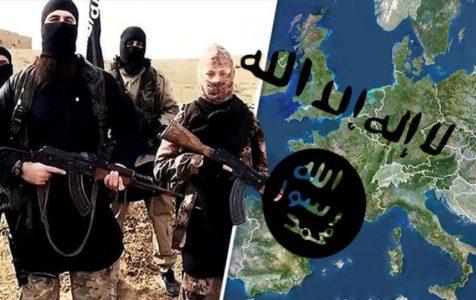
Terrorism threat level rises in the UK amid the upcoming Brexit
Three small explosive devices in plastic mailing bags arrived at offices for two London airports and at a train station Tuesday, and Irish police said they were helping British counterterrorism police with the investigation. The incident came after a car bomb blast in Northern Ireland late January in the city of Londonderry amid uncertainty over the future of the Irish border as Brexit is adding to tensions in Northern Ireland. The official terrorism threat level throughout Britain is set at “severe,” indicating that intelligence analysts believe an attack is highly likely.
The Metropolitan Police Counter Terrorism Command “is treating the incidents as a linked series” and “keeping an open mind regarding motives,” the department said in a statement. Sky News correspondent Alistair Bunkall tweeted a picture of what he said was the package sent to the Heathrow office building. The stamps on the envelope have pictures of hearts and resemble ones issued by Ireland’s post office for Valentine’s Day 2018.
Brexit negotiations, which have raised the possibility of reinstating a hard border between Northern Ireland and the Republic of Ireland, have brought fears of a return of violence. More than 3,700 people died during decades of violence before the peace accord. The 1998 Good Friday Agreement put an end to decades of sectarian conflict in Northern Ireland, but tensions persist between the Protestant and Catholic communities. Most militants have renounced violence, but some Irish Republican Army (IRA) dissidents carry out occasional bombings and shootings.
Northern Ireland’s fate has come to play a pivotal role in the final weeks before Britain is due to leave the European Union, as its frontier with Ireland is the only British land border with the rest of the EU. The Good Friday agreement of 1998 that ended 30 years of sectarian unrest in the province demands that border control posts are never replaced at the frontier. But EU rules require border checks with countries outside the common market.
A deal reached by Prime Minister Theresa May with European leaders last year calls for a “backstop” under which Northern Ireland would continue to apply many EU rules unless another means can be agreed in future to keep the border open. The backstop is the main objection raised by pro-Brexit British lawmakers who voted against May’s deal, including the main Northern Irish unionist party, which supports May. Britain is now on course to leave the EU on March 29 with or without a deal, although May has said this could be delayed.
Source: Daily Sabah





